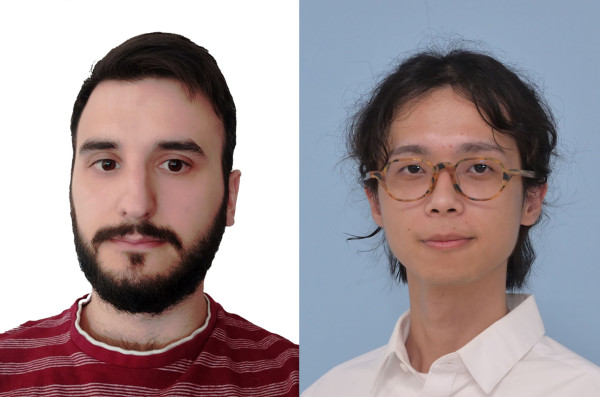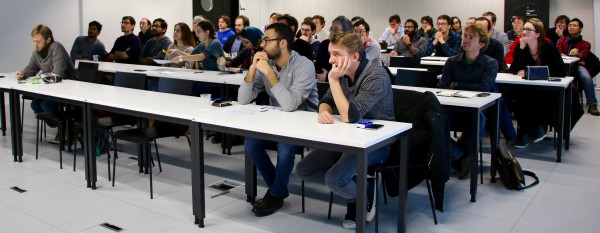MARVEL Junior Seminar — February 2025

Each seminar consists of two presentations of 25 minutes each, allowing to present on a scientific question in depth, followed by time for discussion. The discussion is facilitated and timed by the chair.
Pizzas will be served after the seminars in order to facilitate discussions based on the talks just presented.
Onsite participation
12:15 — Seminars take place in EPFL room Coviz2 (MED 2 1124)
~13:15 — Pizzas will be served in the MED building atrium, second floor
Online participation
Starting at 12:15:
https://epfl.zoom.us/j/68368776745
Password: 1923

Abstracts
Talk 1 — We actually also design and discover molecular materials: a comprehensive LCMD digital effort
Rubén Laplaza Solanas, Clémence Corminboeuf
Computational molecular design laboratory (LCMD), EPFL
The automated digital discovery of novel functional molecules requires extensive infrastructural efforts beyond the development of machine learning platforms such as those in MARVEL's Pillar 2. While most of the efforts of the laboratory for computational molecular design within MARVEL is focused on Q-stack and M-stack, we also deploy comprehensive workflows to actually design and discover molecular materials! In this talk, I will detail how quantum chemistry, software and data come together for practical applications in inverse molecular design. Within the context of this effort, I will discuss how we have extensively mined crystallographic repositories using the cell2mol software to generated curated databases such as OSCAR (>1M organocatalysts) and FORMED (>100k organic molecules and excited state properties). Starting from high-throughput virtual screening, we have developed increasingly sophisticate inverse design workflows, including machine learning models to expedite property prediction, fragment-based genetic algorithms to efficiently explore chemical space, and, more recently, data-driven generative models using reinforcement learning. As a practical example, I will demonstrate how we leveraged these workflows in the quest for singlet fission chromophores for dye-sensitized solar cells, leading to the identification of promising systems like mesoionic acceptors and neocoumarins.
Talk 2 — Machine learning accelerated molecular dynamics study on the oxygen evolution reaction of BiVO4 photocatalyst
Yongbin Zhuang, Alfredo Pasquarello
Chair of atomic scale simulation (CSEA), EPFL
Harvesting energy from sunlight through photocatalytic water splitting is a key area of research that attracts significant global interest. The primary challenge in this process is the oxygen evolution reaction (OER), which requires a detailed investigation of the kinetic barriers during the transfer of photogenerated holes from photocatalysts to adsorbed water molecules. Traditional methods, such as simulating free energies with QM/MM schemes or ab initial molecular dynamics, face convergence issues on the picosecond timescale. Moreover, static geometry relaxation or nudged elastic band calculations fail to account for the dynamic nature of interfaces, leading to uncertain barrier estimations. In this talk, we show how machine learning potentials can drive the free energy surface calculation for hole transfer at BiVO4-water interfaces. This method enables us to identify the kinetic barriers of the OER at the interface, including the impact of water dynamics, providing crucial insights into the OER bottleneck.
Check the list of the next MARVEL Junior Seminars here.
Low-volume newsletters, targeted to the scientific and industrial communities.
Subscribe to our newsletter